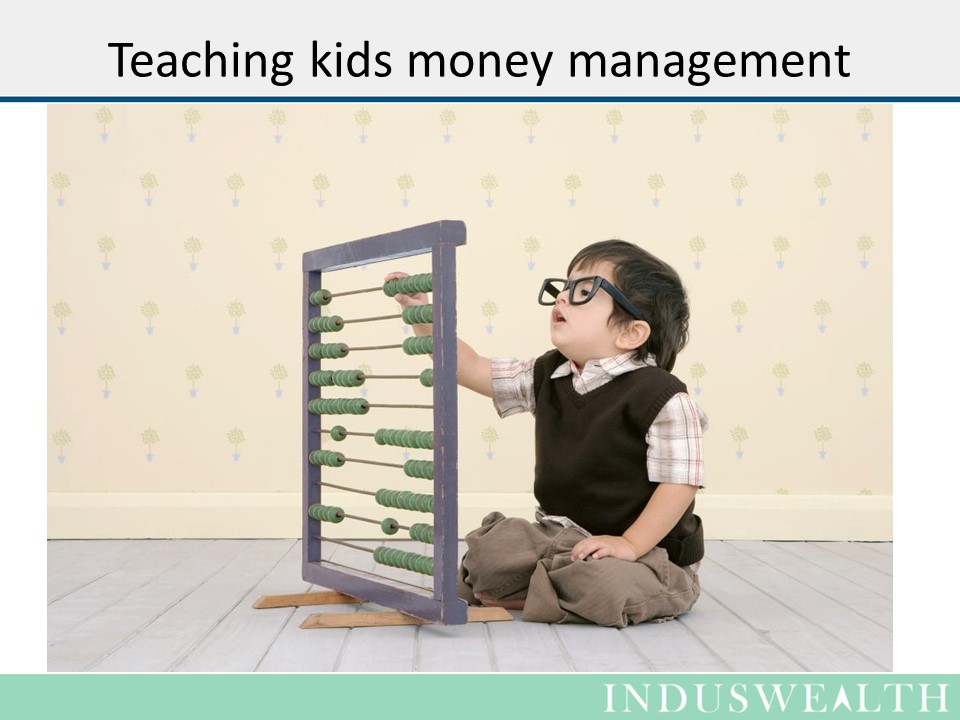Parenting and managing money are two things most of us do – but there is very little material/training available about either of them, we are expected to figure this out as we go along. Teaching kids about money management is hardly discussed, though it could be one of the most important lessons that a child needs to learn.
I was having a chat with a bunch of friends and we were all discussing how to teach our kids about money – each one of us was going about it in our own way. One of them suggested that I write something up about this.
Here are the 3 things, I think, would be key lessons in terms of money management (and hopefully a bit more), that parents can teach their children.
Needs vs Wants
One of key things children need to be taught is the difference between needs and wants – needs are limited and wants are not. I read an article about a bunch of billionaires sending their grown up children to sensitization camp whose primary focus was to teach them about needs vs wants, I think this should and can be taught at an early age.
I think, parents should take care of kids needs but let the kids manage their wants, this creates an opportunity for them to teach their kids about the difference between needs and wants. One way is to offer a “discretionary” budget every month to children which will be enough to take care of “most” of the child’s wants but “not all” of them. Each time the kid “needs” something, parents can have a conversation if the kid really “needs it” or “wants it”. If it is established that the child needs it then the parent can get it else the child will have to get it from her discretionary budget. This will help the child understand the difference between needs and wants. As the budget is limited and child can’t get everything she wants, she will start learning to “prioritize” and “manage within a budget”.
Delaying gratification
Delaying gratification is willingness to postpone current consumption for a better outcome in the future. The Stanford marshmallow experiment found that children who were able to delay gratification have better life outcomes, as measured by SAT scores, educational attainment, body mass index (BMI), and other life measures.
One way to teach delaying gratification is to offer an “interest” on the money that is saved from the “discretionary budget” the child has. Initial interest offered to the child could be something like doubling the money that is saved. I agree, doubling regularly is not sustainable, but it can be used to get the concept across and then the “rate of interest” can be tapered down. I believe this needs to be exaggerated in the beginning to get the child’s attention and to let the concept sink in. This teaches two things, delaying gratification has its benefits and that one can use power of compounding to enhance ones savings – which are key life lessons.
Don’t pay for performance
Most adults are prone to using money/incentives/gifts as a motivator. There is enough research to show that this does not work, using such strategies with kids could be detrimental. Once an incentive is used to encourage someone to take up something, that activity invariably becomes a chore worth doing only if the incentive is there. Also the incentive has to be provided in greater and greater amounts just to get the same outcome.
One of the things kids should be taught to do is to pursue whatever they want to pursue because they like it or because it is their responsibility. Research suggests that people do very well when they are pursuing activities they like/enjoy.
The discretionary allowance given to the kids should not be a quid pro quo for doing something their parents want them to do. This will let kids pursue something because they like to and will also make them understand about their responsibilities.
Lines can be drawn about “responsibilities” that the kid needs to honor as a member of the family. Deductions can be made from the discretionary allowance if some of the responsibilities are not fulfilled. This way parents can leverage the basic “loss aversion” to make sure children discharge agreed responsibilities without an explicit quid pro quo, i.e., discretionary money is given without any conditions but failing to discharge ones responsibilities has consequences.
All said and done, best way to teach children about money management (or anything else) is by being a good example.
Parenting is a bit like investing, investments are made today, results will be known sometime in the future, and there isn’t a formula that works for everyone. However, there are some sound fundamental principles, but each person has to find her own method of implementing these principles though continual titration and learning. This, if done well usually results in satisfactory outcomes.
I am not an expert in investing and definitely not in parenting. I believe some of these ideas have merit, if they are implemented well, they could result in satisfactory outcomes.
Happy investing….err .. happy parenting




